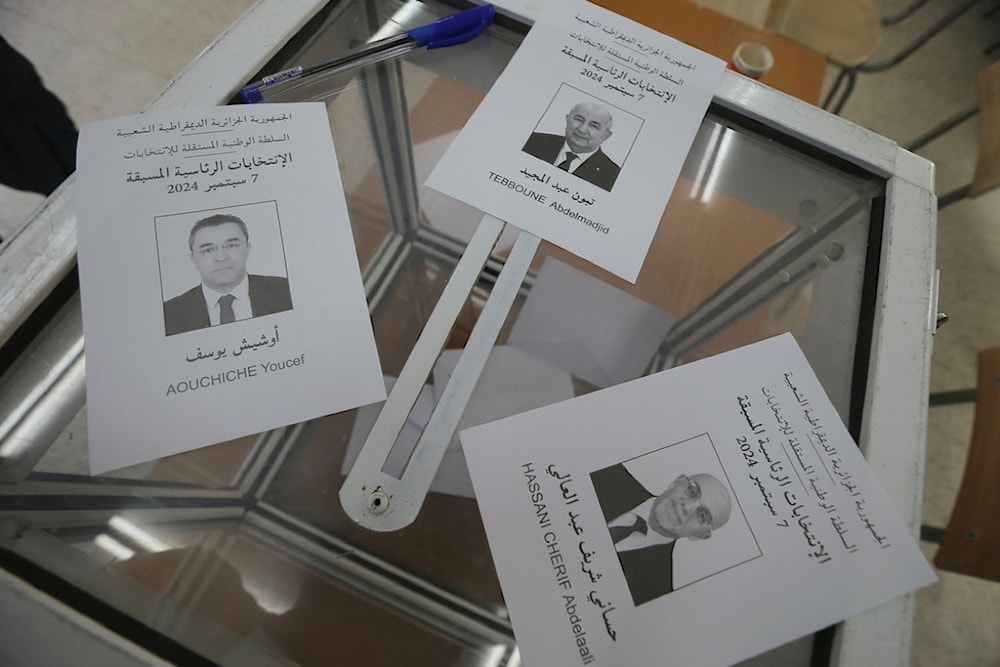Algeria extends Presidential election voting by one hour
The Presidential election in Algeria is extended by an hour as voter turnout is expected to increase.
-

Ballots showing the three presidential candidates are placed on a table inside a polling station during the presidential election, September 7, 2024, in Algiers, Algeria (AP)
The Independent National Electoral Authority in Algeria announced Monday that voting in the presidential election has been extended by an additional hour.
Polling stations were initially scheduled to close at 6:00 PM local time, but the authority issued a decision to extend the voting period.
In a statement, the electoral authority reported that "the voter turnout had reached 26.45% nationwide by 5:00 PM."
"Voter turnout typically increases in the final hours of the election," an Al Mayadeen correspondent noted.
This election features three candidates: Youcef Aouchiche, the Secretary General of the Front of Socialist Forces (FFS); independent candidate Tebboune; and Abdelaali Hassani, leader of the Movement of Society for Peace (MSP).
24,351,551 eligible voters
According to figures from ANIE, the electorate consists of 24,351,551 voters, with 23,486,601 within Algeria, of which 47% are women and 53% are men. Additionally, 36% of the voters are under 40 years old.
Algeria’s electoral law stipulates that a candidate winning more than 51% of the vote can secure the presidency without the need for a second round.
Tebboune, 78, is the clear frontrunner, expected to defeat moderate Islamist Hassani and socialist candidate Aouchiche in the contest to lead the North African nation.
One of the key challenges for Tebboune will be encouraging voter turnout, particularly after winning the 2019 election with 58% of the vote, amid a record abstention rate exceeding 60%.
The low turnout in 2019 followed the Hirak pro-democracy uprising, which led to the ousting of long-time president Abdelaziz Bouteflika, before being toned down by heavy policing.
With over half of the population being young, all candidates have focused their campaigns on this demographic, offering promises to improve living standards and reduce the country's dependence on hydrocarbons.
Tebboune has emphasized his economic achievements during his first term, including job creation and wage increases, in Africa’s largest natural gas exporter.

 2 Min Read
2 Min Read








